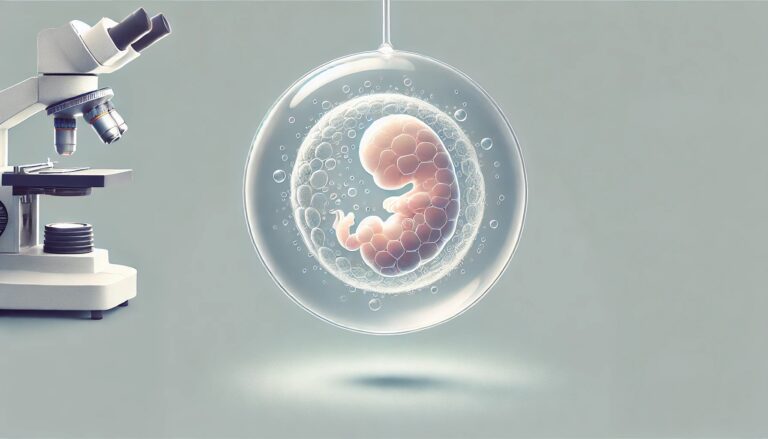Many women in their 40s are considering IVF, whether for their first child or to grow their family. While fertility naturally declines with age, advances in reproductive medicine have made it possible for women in their early, mid, and even late 40s to conceive. Many clinics worldwide now offer tailored treatments, innovative protocols, and options like donor eggs to help women achieve pregnancy despite reduced ovarian reserve. IVF at this stage is not about “desperation”—it’s about making informed choices with the best available medical support.
If you’re exploring IVF after 40, you likely have questions about success rates, treatment options, and the best ivf clinics over 40. This article will guide you through everything you need to know, from choosing the right fertility center to understanding which treatments offer the highest chances of success. Whether you’re looking for a clinic in Europe or beyond, this guide will help you make the best decision for your fertility journey.
IVF at 40 – success rates
The number of women seeking fertility treatment at the age of 40 and above is rising. There are many reasons for this including previous failed IVF attempts, a poor prognosis of natural conception due to advancing age, decisions delayed due to a career or lack of a partner or because of the realization that menopause might be imminent. It is also estimated that one in three women aged between 40 and 44 experience some form of infertility.
The chances of conceiving naturally decline with a woman’s age. A woman is born with a finite number of eggs and as she ages so do the eggs; estimates suggest that by the age of 40 women have a mere 5% chance of achieving a pregnancy. However, one should not assume that IVF at 40 is a cure-all – the chances of IVF working at 40 are lower than IVF working at 30. IVF success rate at 40 is only increased substantially with treatments involving donor eggs or embryos.
Vladimiro Silva, founder & IVF lab director at Ferticentro, explains:
The first thing that needs to be done is the pregnancy risk assessment. You need to ask yourself if you can with it if it is possible to have a safe pregnancy, and if the answer is yes, you can move on to the next step. This is an ovarian reserve assessment to see if it is still possible to proceed with your own eggs, or if you should go for an egg donation instead or maybe try Preimplantation Genetic Testing as an intermediate solution.
The average success rate per cycle for women over 40 with IVF is approximately 9% – whilst this chance is lower than the percentage for younger patients. IVF for women over 40 represents one of the best options for those seeking to become pregnant. When women over 40 access treatment involving donor eggs or embryos the success rate jumps to 50-60%.
IVF over 40 Clinics ListBest IVF clinics in the world for women 40+
When looking for the best IVF clinics for women over 40, success rates alone don’t tell the whole story. Many top-tier clinics worldwide offer high-quality treatment, but differences in cost, donor availability, patient support, and legal frameworks can significantly impact your experience and outcome.
For instance, IVF clinics in the United States are renowned for their advanced technologies and wide donor selection, making them an excellent choice for those seeking a highly personalized approach. However, the cost of treatment is among the highest in the world. Similarly, the UK offers high-quality IVF treatments for older women, with no legal age limit for patients and a strong regulatory framework, but donor availability is more limited, and treatment costs are relatively high compared to other European countries.
Ultimately, the best IVF clinic is the one that meets your specific needs, whether that means affordability, access to a diverse donor pool, or specialized protocols for women over 40. Below is a list of the most popular IVF clinics among women over 40 on our website, chosen for their expertise, success rates, and high-quality patient care:
- Clinica Tambre – Madrid
- UR Vistahermosa – Alicante
- UNICA – Prague
- GYNEM – Prague
- Dunya IVF – Kyrenia
- Cyprus IVF Hospital – Famagusta
- emBIO Medical Center – Chalandri
- Pelargos IVF Medical Group – Athens
With many options available, researching and comparing clinics will help you find the best fit for your journey to parenthood.
IVF at 40 – indications and contraindications
Do egg donation treatments represent the best possible chances of IVF working at 40 but is the treatment safe after 40? There are, of course, risks as with any other age but these risks are more acute as we get older. There are, however, a number of procedures that are performed by infertility clinics that attempt to mitigate any risks.
When searching for an appropriate clinic to undergo treatment you should seek their success rates in treating patients older than 40. Consider carefully those infertility clinics that offer multiple transfers – these treatments which can result in multiple pregnancies can cause serious problems for both the mother and baby.

If you are over 40 and are using your own eggs for treatment, ensure your chosen clinic offers the best IVF protocol including the use of time-lapse embryo monitoring which may identify any genetic abnormalities in embryos that older patients are more likely to have. To reinforce this, access to Preimplantation Genetic Screening (PGS) which offers genetic profiling of embryos prior to implantation will also provide an opportunity to ensure any embryos do not carry any genetic abnormalities.
IVF over 40 – success tips
Prior to starting your treatment at the infertility clinic, there are a number of things that can improve your chances of success. After the age of 35 women are at a higher risk of developing diabetes and high blood pressure, therefore, it might be advisable to get a general health check prior to starting any treatment, and remember that BMI can influence the success of IVF treatment. Equally, as we age we are more prone to heart disease and cancer, so ensure you talk to your ob/gyn consultant and where possible have a mammogram before treatment to lower risks.
Are donor eggs commonly used for IVF in women over 40?
IVF with donor eggs is one of the most effective treatments for women aged 40 and older, offering high success rates. Egg donation significantly improves the chances of pregnancy, particularly for women with poor ovarian reserve or a higher risk of chromosomal abnormalities.
Many clinics specialize in donor egg programs or customized fertility treatments. However, every situation is unique. A fertility expert may recommend IVF with donor eggs if they believe it will save time, reduce costs, and increase the likelihood of achieving a healthy pregnancy. In some cases, additional procedures may be suggested before deciding whether to proceed with IVF using your own eggs or donor eggs.It’s essential to have open and honest discussions with your fertility expert about your concerns and options. This will help you make an informed decision. For more guidance, read our article 7 Questions to Ask the IVF Clinic Before Donor Egg IVF, which outlines key questions to help you navigate your choices and select the best IVF treatment for your needs.
Is IVF effective for women over 40 using their own eggs?
According to statistics, IVF with own eggs can still be effective for patients of advanced maternal age. However, the success rates for women aged 40 and above are lower compared to younger women. This decline is due to some factors such as reduced egg quantity and quality, previous fertility issues, genetic abnormalities, and others.
Many clinics now offer personalized approaches tailored to the needs of patients in advanced maternal age. For some women in their early to mid-40s, customized IVF treatments with own eggs can result in successful pregnancies. However, for those facing the challenges we mentioned above, IVF with donor eggs is often recommended as the approach offers higher success rates and a high chance of achieving a healthy pregnancy.
By exploring all available options and consulting with a fertility expert, patients can choose the treatment that best supports their journey toward parenthood.
IVF or IUI at 40?
The chances of IVF working at 40 through intrauterine insemination (IUI) are, on average, around 5% compared to IVF at around 9%.
If your fertility problem is a result of blocked fallopian tubes, low egg viability or number, severe endometriosis or your partner experiences male factor infertility, IUI is not an appropriate treatment. As an older patient at 40 or over you may, as a matter of course, be advised against IUI because of your egg reserve.
IVF with own or donor eggs at 40
Each patient is different, and it will be up to your personal ob/gyn specialist to suggest which mode of treatment is better for you and the chances of success using your own eggs compared to donor eggs. However, statistics point to the fact that success ratios increase exponentially when women over 40 use donor eggs.
The figures speak for themselves – own egg treatments undertaken by women aged 40 and above would likely lead to an average 9 – 10% per cycle success rates which climb to 50 – 60% when donor eggs are used.
Fresh vs frozen IVF at over 40
When you are receiving treatment with donor eggs, you may be offered fresh or frozen gametes. Most clinics would suggest that the success rates for using either are broadly similar but the decision to use one over the other may be a logistical one i.e., it is easier to book a fixed date for a transfer procedure using frozen eggs than having to rely on reacting to a retrieval date which might not be fixed. When you are travelling for treatment , time is often very important – the cost of using frozen eggs will often be cheaper as there are less medication costs involved in the procedures.
How to prepare for IVF at 40?
If you are aged 40 or above there are a number of things you can do to increase your chances of achieving a successful pregnancy. Many of these things should be undertaken by anyone regardless of age, prior to IVF treatment. However, there are a number of additional steps that you can take as an older patient.
First of all, get an initial fertility and general health check; ideally from an independent ob/gyn, infertility specialist and/or General Practitioner. A successful IVF procedure at any age requires patients to be generally healthy. But as you get older, you are more vulnerable to certain conditions such as diabetes and high blood pressure. Keep an eye on your lifestyle and where necessary modify or change, to improve the chances of getting pregnant. This might include reducing your alcohol consumption, taking more exercise and keeping an eye on your weight.
Aside from your physical health, be mindful of your mental health. Where necessary consult a fertility coach or counselor who will help to ensure any decision you make is an informed one and that you are mentally prepared for the treatment you are planning.
Finally, do your research. There are multiple treatment providers who claim high IVF success rates for those over 40. Take your time before you decide on an appropriate treatment or destination. Ask treatment providers for their specific success rates for patients of your age; ensure the statistics they provide are transparent and easily understood. Book an appointment to speak to the team who will be responsible for your care; ask about what support the clinic provides; seek feedback from patients who have been treated at the clinic and obtain clear details of costs before you decide anything.
Preparing for IVF at 40 can be daunting but with the right preparation, you can make the journey much easier.
Dr Elias Tsakos, fertility expert and medical director of Embryoclinic (Greece) explains:
It’s unwise to embark on a fertility journey without a thorough assessment of all potential risk factors. These factors can affect not only the success or failure of IVF but also the success or failure of pregnancy and a woman’s general health and well-being. This applies to uterine dysfunction, fibroids, adenomyosis, endometriosis, and uterine polyps.
What are the best IVF clinics in Europe for women over 40?
What criteria are used to identify the best IVF clinic in Europe for over 40-year-olds? Well, success rates obviously play a part alongside cost and available donors. If you are aged up to 50 most European countries will have a wide variety of clinics to choose from and the most popular destinations match those which are preferred by younger patients. Subsequently, clinics in Spain, the Czech Republic, and Greece are very popular and are home to some of the most well-established clinics in the world.
As the majority of women will be seeking donor treatment, you will need to invest some time in reviewing the legal framework of different destinations (i.e., is donor treatment legal; is donor treatment only available to married, heterosexual couples, and so on).
IVF over 40 Clinics ListWhich IVF clinics have the highest success rates for women in their 40s?
Success rates are often a key factor when choosing a clinic for IVF treatment. However, before asking about a clinic’s success rates or reviewing their statistics, we recommend reading our article IVF Success Rates – Myths & Figures Revealed. In it, we explain what success rates truly represent and how clinics calculate them. By understanding the methodology behind these figures, you’ll be better equipped to ask the right questions and make meaningful comparisons to find the clinic that best suits your needs.
Our expert team has curated a list of the best IVF clinics, complete with detailed profiles that include each clinic’s success rates. For instance, some clinics on our list report pregnancy rates as high as 87% per embryo transfer for IVF with donor eggs.
What are the age limits for IVF in European countries?
Age limits for IVF vary across Europe, depending on the country and sometimes clinic and/or individual circumstances. You will find the most complete information about age limits in our Free IVF Abroad Guide, and also in Find IVF clinics.
One of the most flexible destinations are Spain, Greece, North Cyprus, and Latvia.
Is it worth trying IVF at age 45?
Undergoing IVF with your own eggs at age 45 can be challenging. At this age, the quality and quantity of eggs decline significantly, increasing the chances of chromosomal abnormalities and reducing the likelihood of implantation and a healthy pregnancy.
For women at the age of 45, IVF with donor eggs is often a recommended option as the treatment improves treatment success rates. Consulting with a fertility specialist is an essential step to assess your individual health and reproductive potential. The consultation will help you make an informed decision about whether to undergo IVF with your own eggs or donor eggs.
What are the risks of IVF at age 43?
IVF can be a valuable option for women seeking to conceive at age 43, but it comes with unique challenges and risks.
| Challenges | |
| Egg and embryo quality | Poor egg quality, lower embryo quality, risk of failed fertilization |
| Implantation | Reduced implantation rates, higher miscarriage rates |
| Health risks | Ovarian hyperstimulation syndrome (OHSS) |
| Emotional and psychological risks | Emotional stress, anxiety and depression, relationship strain |
| Financial and practical risks | High costs, no 100% guarantee of success |
| Medical and treatment-related risks | Failed IVF cycle(s), side effects from medications |
How successful is IVF for women over 42?
IVF success rates for women over 42 are generally low when using their own eggs because of many reasons such as the natural decline in egg quality and quantity, which increases the risk of chromosomal abnormalities and reduces the likelihood of implantation.
Despite these challenges, some IVF clinics have developed specialized techniques to improve success rates for older women. Tailored approaches can boost success of IVF with their own eggs. While IVF with own eggs can still be a viable option at this age, many fertility specialists recommend considering IVF with donor eggs.
Do women over 40 need special IVF protocols?
Women over 40 often need tailored IVF protocols to address age-related fertility challenges such as poor ovarian reserve or chromosomal abnormalities. Many leading IVF clinics adopt tailored approaches to optimize fertility potential while minimizing the risks.
Clinics can also recommend individualized strategies such as e.g. preimplantation genetic testing (PGT) to screen for chromosomal abnormalities in embryos to increase chances of a healthy pregnancy.
Are there high-success-rate clinics in Spain for women over 40?
Spain has several high success rate IVF clinics that specialise in women over 40. Spain’s liberal laws also allow for many treatments for women of all ages so it’s a popular destination for international patients looking for high quality care. The combination of expert care, latest technology and personalised treatment plans make these clinics perfect for women over 40 looking for IVF.
When seeking IVF treatment in Spain, one of the most selected clinics by international patients are: IVF clinics Spain
Why is Greece a popular destination for IVF?
Greece is one of the most popular destinations for IVF due to many reasons. One of the main ones is the high standards of healthcare in IVF clinics which often have modern facilities and latest reproductive technologies. The combination of experienced doctors and latest techniques gives high success rates. Also Greece has a liberal law that allows anonymous egg donation and multiple embryo transfer which can increase the chances of getting pregnant.
And the cost is lower. Many Greek IVF clinics have English speaking staff and are open to international patients. One of the most chosen IVF clinics can be checked in the section IVF clinics Greece.
Why do people choose Spain for IVF treatment?
Patients choose Spain for IVF treatment because of its world-renowned fertility clinics, high success rates, and relatively affordable treatment options compared to countries like the UK and the US. The high success rates associated with Spanish clinics often exceed the European average. This is supported by a large number of donors, as the anonymity of donors in Spain encourages many young individuals to participate, ensuring that patients have access to quality eggs without long waiting lists.
Spain’s progressive legislation allows for a wide range of treatments, including genetic screening and the IVF ROPA method for same-sex couples, which are not available in many other countries. The availability of English-speaking staff and the convenience of medical tourism, along with Spain’s beautiful locations, make it a popular destination for international patients. More information about IVF with donor and own eggs, you will find in the section: IVF and Egg Donation in Spain.
IVF at 40 – wrap up
IVF at 40 is becoming a real consideration for increasing numbers of women. Whilst IVF success rates are lower for patients over 40, the chances of getting pregnant via an IVF procedure is greater than trying for a natural conception. Using donor eggs or embryos significantly increases success rates and there are infertility clinics that will offer bespoke treatment packages for older patients. There are more potential risks associated with IVF over 40, so if you are considering treatment ensure you have all the necessary health checks prior to starting your treatment.
FAQ
Here, you will find answers to various questions. We aim to provide clear and concise information to help you make informed decisions.
What are the chances IVF will work for women over 40?
It is estimated that a woman over 40 using her own eggs will have a likely success rate of around 9%. This increases to between 50 and 60% if you are using donor eggs or embryos.
Is natural pregnancy possible after failed IVF at 40?
It is possible and will depend on your general and fertility health. We are all aware that fertility diminishes as we get older, and by the time you reach your 40s, your chances of achieving a natural pregnancy fall to around 5%.
Should I choose IVF with fresh or frozen eggs at 40?
There has been much debate about the relative merits of fresh over frozen eggs and vice versa. The ultimate decision about which to choose will depend on the clinic you attend and your flexibility in terms of your availability. Another consideration is cost – choosing frozen eggs will be cheaper than using fresh as the amount of medication required is lower.
Can I have 1st-time success via IVF at 40?
Yes, you can achieve 1st-time success via IVF at 40 – it is certainly possible but these chances do increase substantially when you choose to have treatment using donor eggs or embryos.
Table of Contents
- 1 IVF at 40 – success rates
- 2 Best IVF clinics in the world for women 40+
- 3 IVF at 40 – indications and contraindications
- 4 Are donor eggs commonly used for IVF in women over 40?
- 5 Is IVF effective for women over 40 using their own eggs?
- 6 IVF or IUI at 40?
- 7 IVF with own or donor eggs at 40
- 8 Fresh vs frozen IVF at over 40
- 9 How to prepare for IVF at 40?
- 10 What are the best IVF clinics in Europe for women over 40?
- 11 Which IVF clinics have the highest success rates for women in their 40s?
- 12 What are the age limits for IVF in European countries?
- 13 Is it worth trying IVF at age 45?
- 14 What are the risks of IVF at age 43?
- 15 How successful is IVF for women over 42?
- 16 Do women over 40 need special IVF protocols?
- 17 Are there high-success-rate clinics in Spain for women over 40?
- 18 Why is Greece a popular destination for IVF?
- 19 Why do people choose Spain for IVF treatment?
- 20 IVF at 40 – wrap up
- 21 FAQ





